7 March 2025

The Federated European Genome-phenome Archive (FEGA) has expanded its network and continues to evolve by embracing emerging technologies.
SCIENCE & TECHNOLOGY
2025
science-technologytechnology-and-innovation
5 March 2025

New EMBL-EBI project explores the use of a concept developed in aerospace engineering to support rare disease research, diagnosis, and treatment.
PEOPLE & PERSPECTIVES
2025
people-perspectivestechnology-and-innovation
27 February 2025

The Gene2Phenotype (G2P) website has a fresh new look and now supports more detailed gene-disease mechanism information.
2025
updates-from-data-resources
28 January 2025

The Solve-RD project standardises genomic and clinical data across Europe to support rare disease research.
EMBL ANNOUNCEMENTS
2025
announcementsembl-announcements
14 January 2025

Study identifies a novel mechanism driving osteosarcoma and provides insights to help predict patient outcomes.
SCIENCE & TECHNOLOGY
2025
research-highlightsscience-technology
9 January 2025

The v11.29 DECIPHER release is out now. Find out about the new features and improvements.
2025
updates-from-data-resources
25 October 2024

The v11.28 DECIPHER release is out now. Find out about the new features and improvements.
2024
updates-from-data-resources
15 October 2024
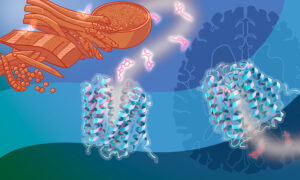
EMBL Hamburg scientists have gained molecular insights into how we absorb vitamin B1 – a mechanism with implications for disease and drug development.
SCIENCE & TECHNOLOGY
25 July 2024

The v11.27 DECIPHER release is out now. Find out about the new features and improvements.
2024
updates-from-data-resources
21 June 2024

The new Team Leader for Human Genomics at EMBL-EBI shares how curiosity and maths shaped her career and what it takes to be a community builder.
PEOPLE & PERSPECTIVES
2024
people-perspectivesperspectives
28 May 2024

The latest DECIPHER release includes AlphaMissense scores, links to the Open Targets Platform and more.
2024
updates-from-data-resources
2 April 2024

The latest DECIPHER update, version 11.25, introduces new key features including the integration of functional data from multiplexed assays of variant effect (MAVEs) and much more.
2024
updates-from-data-resources
28 February 2024

Version 11.24 of DECIPHER introduces a new ACMG/AMP pathogenicity interface for sequence variant predictions, displays ClinGen Variant Curation Expert Panel recommendations on gene pages, and updates ACMG secondary finding information to v3.2.
2024
updates-from-data-resources
6 July 2023
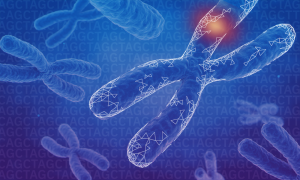
Closer collaborations with EMBL-EBI data resources set to further develop and grow this unique rare disease platform.
EMBL ANNOUNCEMENTS
2023
announcementsembl-announcementsscience
8 June 2023

EMBL-EBI data resources are being used to deliver thousands of genetic diagnostics to patients every month.
SCIENCE & TECHNOLOGY
2023
perspectivessciencescience-technology
9 March 2023

EMBL-EBI researchers use UK Biobank data to uncover new information about rare diseases of the eye.
2023
research-highlightsscience
28 February 2023

Why open data from model organisms is essential for rare disease research.
15 July 2022
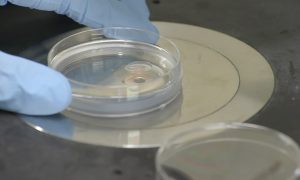
The GEEF facility at EMBL Rome supports scientists worldwide with scientific expertise and state-of-the-art gene editing technologies.
LAB MATTERSSCIENCE & TECHNOLOGY
2022
lab-mattersscience-technology
28 April 2022

Scientists at EMBL Barcelona have created for the first time a 3D in vitro model that recapitulates the periodic formation of human somites – structures that give rise to the spinal column.
SCIENCE & TECHNOLOGY
2022
sciencescience-technology
9 December 2021
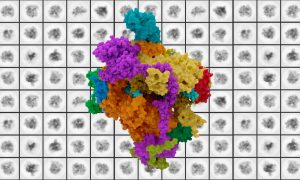
New structural biology research provides fundamental information critical to understanding enzyme mutations connected to rare diseases and cancers.
SCIENCE & TECHNOLOGY
2021
sciencescience-technology
24 November 2021

Tudor Groza joins EMBL-EBI as our new Phenomics Team Lead. We found out from Tudor exactly what this new role will entail
LAB MATTERSPEOPLE & PERSPECTIVES
2021
lab-matterspeople-perspectives
4 March 2021
Scientists in the Stegle group and colleagues have studied induced pluripotent stem cells from around 1,000 donors to identify correlations between individual genetic variants and altered gene expression. They linked more than 4,000 of the genetic variants responsible for altered expression…
SCIENCE & TECHNOLOGY
2021
sciencescience-technology
8 February 2021
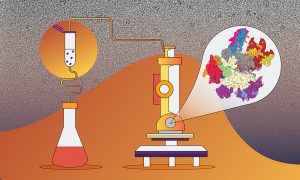
New EMBL research shows where & to what degree a component of cellular machinery known as RNA Pol III is mutated and becomes problematic.
SCIENCE & TECHNOLOGY
2021
sciencescience-technology
30 June 2020

A national consortium including EMBL and the DKFZ is set to launch the German Human Genome–Phenome Archive, creating an invaluable bridge between fundamental biomedical research and applied healthcare.
CONNECTIONSLAB MATTERS
2020
connectionslab-matters
22 May 2020

Researchers in EMBL’s Zaugg group have studied the causes of pulmonary arterial hypertension (PAH), a rare disease that causes high blood pressure in the arteries of the lungs. The study, carried out in collaboration with Stanford University School of Medicine, compared lung cells of patients…
SCIENCE & TECHNOLOGY
2020
sciencescience-technology
3 April 2020
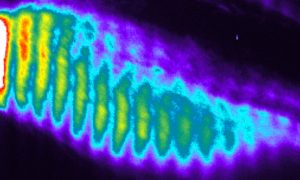
EMBL scientists examine the molecular causes of a rare hereditary disease of the spine and ribs
SCIENCE & TECHNOLOGY
2020
sciencescience-technology
4 February 2020

New resource that categorises genes essential for supporting life could be used to identify rare disease mutations
SCIENCE & TECHNOLOGY
2020
sciencescience-technology
23 July 2019
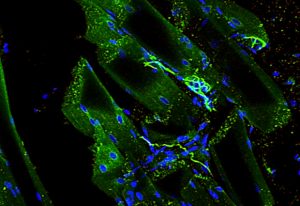
Every single moment of our life we use our muscles – most of the time without even thinking about it. Some muscles, like our heart, we cannot even control at all. How our brain communicates with our muscles is still not fully understood. The communication between our brain and our skeletal…
SCIENCE & TECHNOLOGY
2019
picture-of-the-weekscience-technology
24 January 2019

Federated data sharing will now be possible on an unprecedented scale
SCIENCE & TECHNOLOGY
2019
sciencescience-technology
17 December 2018
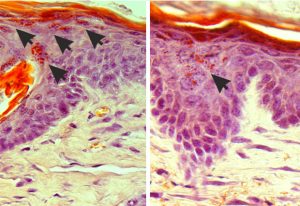
EMBL researchers have found a way to stop itch with light in mice
SCIENCE & TECHNOLOGY
2018
sciencescience-technology
10 May 2018
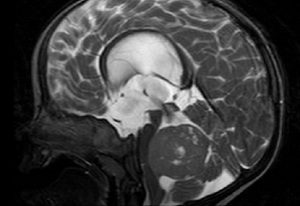
Researchers identify genes that can cause brain tumours in children and other cancers later in life
SCIENCE & TECHNOLOGY
2018
sciencescience-technology
27 May 2015

ELIXIR receives major Horizon 2020 funding to ‘EXCELERATE' activities over the next four years.
LAB MATTERS
12 September 2013
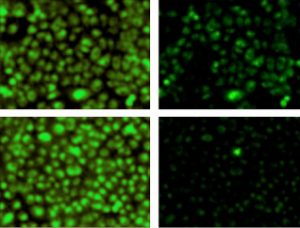
Scientists at the European Molecular Biology Laboratory (EMBL) in Heidelberg and Regensburg University, both in Germany, and the University of Lisboa, in Portugal, have discovered a promising potential drug target for cystic fibrosis. Their work, published online today in Cell, also uncovers a…
SCIENCE & TECHNOLOGY
2013
sciencescience-technology
8 July 2007
Researchers from the European Molecular Biology Laboratory (EMBL) and the University of Michigan have discovered a gene that protects us against a serious kidney disease. In the current online issue of Nature Genetics they report that mutations in the gene cause nephronopthisis (NPHP) in humans and…
SCIENCE & TECHNOLOGY
2007
sciencescience-technology
No results found



























